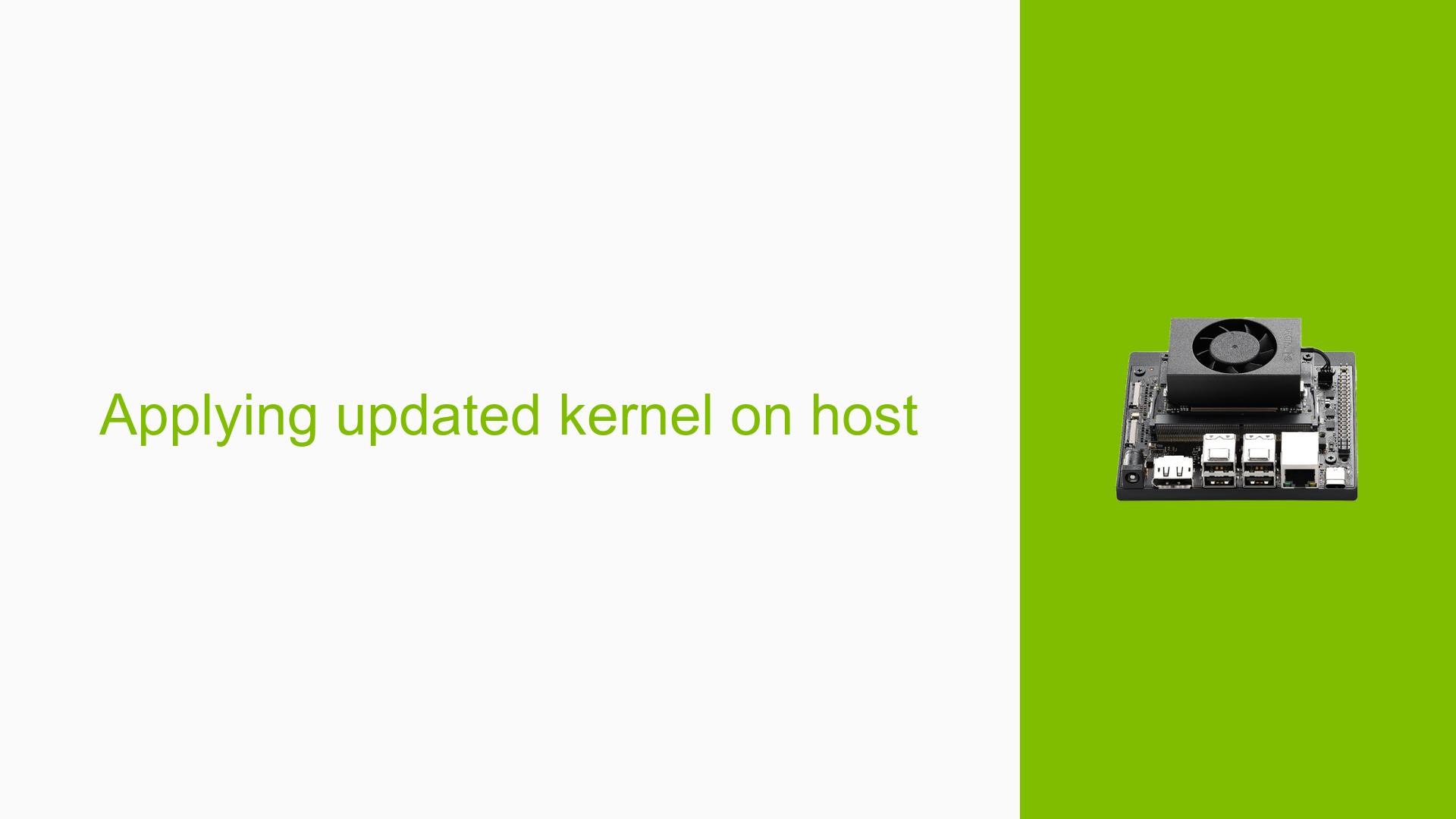Applying updated kernel on host
Issue Overview
Users are encountering challenges when attempting to build and apply an updated kernel from source on the Nvidia Jetson Orin Nano Dev board. The main symptoms include difficulties in transferring necessary files to the Orin Nano without reflashing, issues with loading kernel modules, and complications in modifying the initial ramdisk (initrd) when integrating new features or drivers. This problem typically arises during the setup phase or while trying to run specific applications that require kernel modifications. Users have reported inconsistencies in the process, with some experiencing success while others face persistent failures. The impact on user experience is significant, as it hampers development efforts and leads to frustration over unclear documentation and troubleshooting steps.
Possible Causes
- Hardware Incompatibilities: Issues may arise if using third-party carrier boards that do not fully support the Jetson Orin Nano, leading to boot failures or module loading problems.
- Software Bugs or Conflicts: Conflicts may occur between different versions of JetPack or Linux kernel modules that are not compatible with the current setup.
- Configuration Errors: Incorrect configurations in the device tree or kernel settings can prevent proper loading of modules or drivers.
- Driver Issues: Missing or improperly configured drivers can lead to failures when trying to load specific hardware functionalities, such as camera drivers.
- Environmental Factors: Power supply issues or overheating can affect system stability during kernel builds or device operations.
- User Errors: Missteps in following the correct procedures for building and applying the kernel can lead to unexpected behavior.
Troubleshooting Steps, Solutions & Fixes
-
Diagnosing the Problem:
- Check the current kernel configuration by running:
zcat /proc/config.gz - Verify the L4T release version with:
head -n 1 /etc/nv_tegra_release
- Check the current kernel configuration by running:
-
Gathering System Information:
- Use the SDK Manager to export logs for troubleshooting:
- Click on “EXPORT LOGS” in the SDK Manager GUI after a failed flash attempt.
- Use the SDK Manager to export logs for troubleshooting:
-
Isolating the Issue:
- Test with a different carrier board if possible, especially if using third-party hardware.
- Attempt compiling directly on the Jetson Orin Nano instead of cross-compiling if disk space allows.
-
Modifying Kernel and Initrd:
- If adding features via modules, ensure that all necessary modules are built and included in the initrd if required.
- Use a dependency-aware editor like
menuconfigornconfigto adjust kernel features.
-
Rebuilding Initrd:
- If changes to integrated features are made, recreate the initrd to include valid modules:
sudo update-initramfs -u
- If changes to integrated features are made, recreate the initrd to include valid modules:
-
Testing Kernel Modules:
- Ensure that any new device drivers are correctly integrated into the kernel before booting.
- If using loadable kernel modules (LKM), confirm that they are correctly compiled and placed in
/lib/modules/$(uname -r)/kernel/.
-
Best Practices for Future Prevention:
- Maintain backups of working configurations before making changes.
- Regularly check for updates on documentation related to JetPack and kernel modifications.
-
Recommended Documentation Links:
- Nvidia’s official documentation for JetPack and L4T can be found at NVIDIA Developer.
-
Unresolved Aspects:
- Users may still face issues with specific hardware integrations (e.g., certain camera models) that require further investigation into compatibility with driver support.
By following these structured troubleshooting steps, users can better navigate the complexities of updating and modifying kernels on their Nvidia Jetson Orin Nano Dev boards, potentially leading to successful outcomes without needing to reflash their systems frequently.
